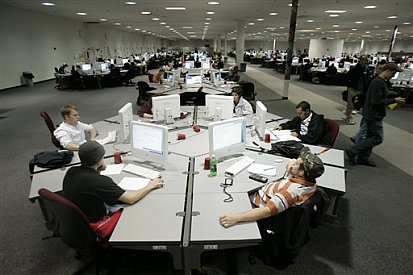
On Sunday (November 25, 2007), Justin Pope interviewed a number of university faculty to explore how faculty and students are handling the large lecture class. He begins his article with some telling comments with Carl Wieman, University of Colorado Nobel Laureate (Physics, 2001) who observes:
Students often tune out and are turned off. Charismatic lecturers get good reviews but, the data show, are no more effective than others at making the most important concepts stick.
Most remarkably, when it comes to teaching not just “facts” but conveying to students the scientific approach to problem-solving, research shows that students end up thinking less like professionals after completing these classes than when they started.
“In a very real way, you’re doing damage with these courses,” Wieman, now a leading voice for reform, said in a recent interview.”
The article then provides a nice exploration of the scope of the issue as well as how several colleges are dealing with the recognized problems in the lecture format class through a variety of pedagogical, technological, and institutional reforms.
Thanks to Beverly Wemple, Department of Geography, for suggesting this article.
Article: Justin Pope, Colleges Cope with Bigger Classes, The Associated press. http://www.abcnews.go.com/US/wireStory?id=3908417
Image: Steve Helber, Students use computers in the Virginia Tech Math Emporium in Blacksburg, Va., Thursday, April 5, 2007. AP Photo. http://www.abcnews.go.com/US/wireStory?id=3908417
